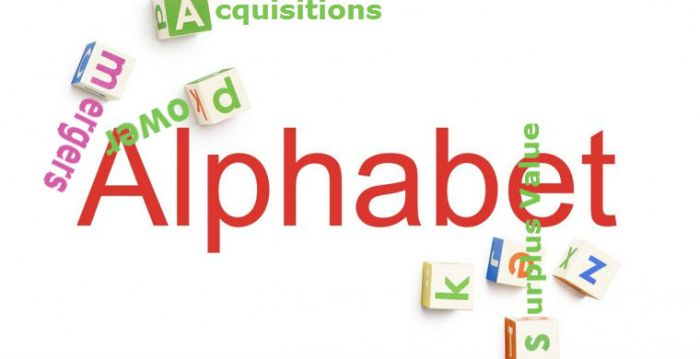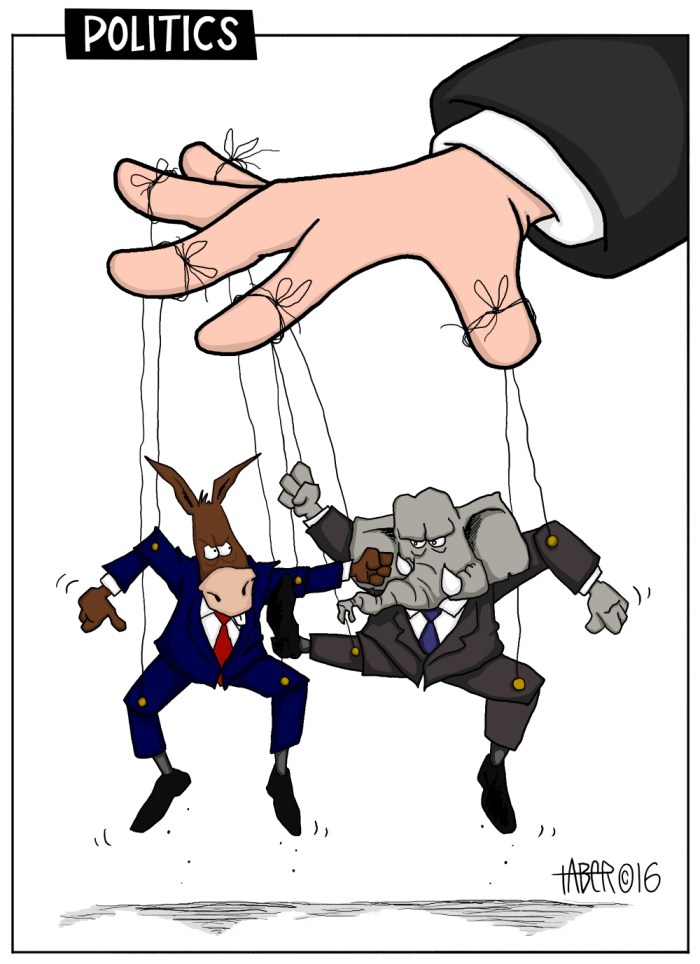 While all eyes were on the travesty that poses for democracy in Iowa, Alphabet (formerly Google) quietly posted its fourth (and first as Alphabet) quarter earnings February 1st. I say quietly because it was not put out in the media in a way that Alphabet is easily capable of, but it certainly generated buzz in the business world. Alphabet, as you may have missed since the media is dedicated to keeping you ignorant about such things, was Google’s reorganizing into a holding company. Announced as a move to save the world with risky (at least from an investment perspective, and not the good kind of risk) technological innovation, it was in actuality as profit-driven as any other company restructuring. Google has been around for over a decade as a publicly-owned corporation and has reached a maturation point that is just as much about long term debts accrued as it is about growth and profitability. It was, in a sense, inevitable, and Google was smart enough to seize the opportunity to diversify their investments formally.
While all eyes were on the travesty that poses for democracy in Iowa, Alphabet (formerly Google) quietly posted its fourth (and first as Alphabet) quarter earnings February 1st. I say quietly because it was not put out in the media in a way that Alphabet is easily capable of, but it certainly generated buzz in the business world. Alphabet, as you may have missed since the media is dedicated to keeping you ignorant about such things, was Google’s reorganizing into a holding company. Announced as a move to save the world with risky (at least from an investment perspective, and not the good kind of risk) technological innovation, it was in actuality as profit-driven as any other company restructuring. Google has been around for over a decade as a publicly-owned corporation and has reached a maturation point that is just as much about long term debts accrued as it is about growth and profitability. It was, in a sense, inevitable, and Google was smart enough to seize the opportunity to diversify their investments formally.
Here is a question without an easy answer: is Alphabet creating or going to create monopolies?
Search engine analysts comScore puts Google’s market share at 63.9%, with their “rival” Yahoo at 12.6%. Market share is calculated by the sales of the company in a particular period over the total market sales. Analysts really focus on it in two instances: when the quarterly earnings are posted and when a major change is being made, such as the introduction of a new product. Alphabet did both, and so many analysts like comScore are interested in where it is going, particularly in that Yahoo’s market share increased as well.
The increases of other companies are important based on the Herfindahl-Hirschman Index (HHI). HHI is calculated by a very simple formula: the sum of each corporation’s market share squared. The higher the score, the more likely that there is a monopoly (economically speaking, we’ll talk in a sec about why the law makes this even more complicated). For example, if one company owns the entire market, 100%, the HHI would be 10,000, but if 100 companies owned 1% each, it would be 100. The Department of Justice’s standard for a “highly concentrated” market is 1,800. The search engine market currently has a HHI of 4,674.79, or about 2.6 times the standard. To give a standard of comparison, the recently struck down merger between US Foods and Sysco was in the context of the possibility of the grocery market HHI increasing to 5,836. But the HHI at time of the attempted merger was 3,036 – why had the Federal Trade Commission not taken action sooner?
Because they intervene during mergers when the HHI is above 2,500 and the merger would result in an increase of more than 200. The attempted US Foods – Sysco merger would have been an increasing of about 2,800, 14 times that amount. This law, 15 U.S.C. § 18, is very good at stopping competition-killing mergers as egregious as that attempted by US Foods and Sysco: but what about “highly concentrated” markets that exist outside the context of mergers?
There are a few other ways for both the government and private parties to go after companies who are creating monopolies or abusing monopoly power, but for the purpose of length I will focus on the one that I think could potentially be used against Alphabet at some point: price discrimination. This antitrust doctrine was at the heart of the most famous antitrust case of our time, U.S. v. Microsoft, which is very instructive in understanding the doctrine. But before we delve into the case, let’s cover a few more basics.
In rational actor economic logic, a monopoly is dangerous because it restricts the ability of individual consumers to “choose” the most “fair” price. The law, which has followed this logic increasingly since the 1970’s, reflects this logic in its regulatory capacities, and also reflects the inherent contradictions. Most notably, the law is extremely hesitant to ever intervene in monopolies when said monopolies are a product of the “invisible hand” of the free market. It is perfectly legal for monopolies to exist, and they exist everywhere in the United States. But what is illegal is when a company “…acquires or maintains, or attempts to acquire or maintain, a monopoly by engaging in exclusionary conduct “as distinguished from growth or development as a consequence of a superior product, business acumen, or historic accident”.” U.S. v. Microsoft, 253 F.3d 34, 58 (2001) quoting U.S. v. Grinnell Corp., 384 U.S. 563, 571 (1968). Price discrimination, as an abuse of monopoly power, is not necessarily against the law: it must be price discrimination with the specific intent to monopolize.
But where do we find the price discrimination in a company that offers many of its key products for free? After all, while Microsoft was sued for their operating system, most of those operating systems were bought in the context of a whole computer, and the Court found that it could be parsed out from the associated “middleware.” So how do you nab Alphabet? As George Monbiot argues in his piece for the Guardian examining the European Union’s attempts to bring Alphabet (then Google) in line, regulators are stymied by a reliance on traditional concepts of property and consumption. And the allegations then by the EU that Google was attempting to use its search engine powers to exert control over markets seems to have been not only ineffective at stopping them, but a roadmap to the reorganization as Alphabet.

Here is the new structure of Alphabet. While this structure is allegedly built on the premise of sustaining riskier investments with Google’s earnings, it also serves to protect Google’s current search engine monopoly and foster new potential monopolies. How Google will get around the monopolies that are far more traditional (a monopoly on driverless cars for example) remains to be seen, but in each aspect Google is attempting to plant flags on yet-to-be-conquered (or in some cases, invented) markets. It is preemptive competition edging, and it is as brilliant as it is incredibly worrisome. With the growth model inherent in all of capitalism (sorry greenwashing corporations), we may be looking at a future where Alphabet establishes cross-market domination not through traditional mergers and acquisitions, which would most easily trigger regulation, but purely through technological innovation investments rivaled only by the U.S. Government (and of course the relationship between the two has been steadily increasing).
There is not a lot of hope here. Normally corporate power is most easily undermined through organizing their workforce, but Google’s workforce is less proletariat and more the new bourgeoisie class. Changes to monopoly regulation could work, but with our current electoral system they may be impossible and would certainly be far too little too late. My only possible solutions are the following two, and they are admittedly longshots:
- Push hard to create worker ownership in markets essential to the current neoliberal capitalism, and especially those essential to Google.
- Push hard for the U.S. government to divest from military spending and reinvest that money into innovation, particularly in the realms of infrastructure, life sciences (which will be in direct competition with both Alphabet and the Gates Foundation), and organization through technology (the fact that Google created Docs before the Left created our own equivalent has been an enormous blow).
- Do not accept Googleocracy. My generation is so willing to be critical of banks, fast food, and other major corporations but we often have a soft spot for companies like Google: after all, if you’re transgender or care about the environment or any number of issues, it seems like Google is on your side. But absolute power corrupts absolutely – we must assert faith in democracy over “benevolent” capitalism, because in the end capitalism can only be so “benevolent” in order to sustain itself.
Support my work through a $1 or $5 donation!




 While all eyes were on the travesty that poses for democracy in Iowa, Alphabet (formerly Google) quietly posted its fourth (and first as Alphabet) quarter earnings February 1st. I say quietly because it was not put out in the media in a way that Alphabet is easily capable of, but it certainly generated buzz in
While all eyes were on the travesty that poses for democracy in Iowa, Alphabet (formerly Google) quietly posted its fourth (and first as Alphabet) quarter earnings February 1st. I say quietly because it was not put out in the media in a way that Alphabet is easily capable of, but it certainly generated buzz in 